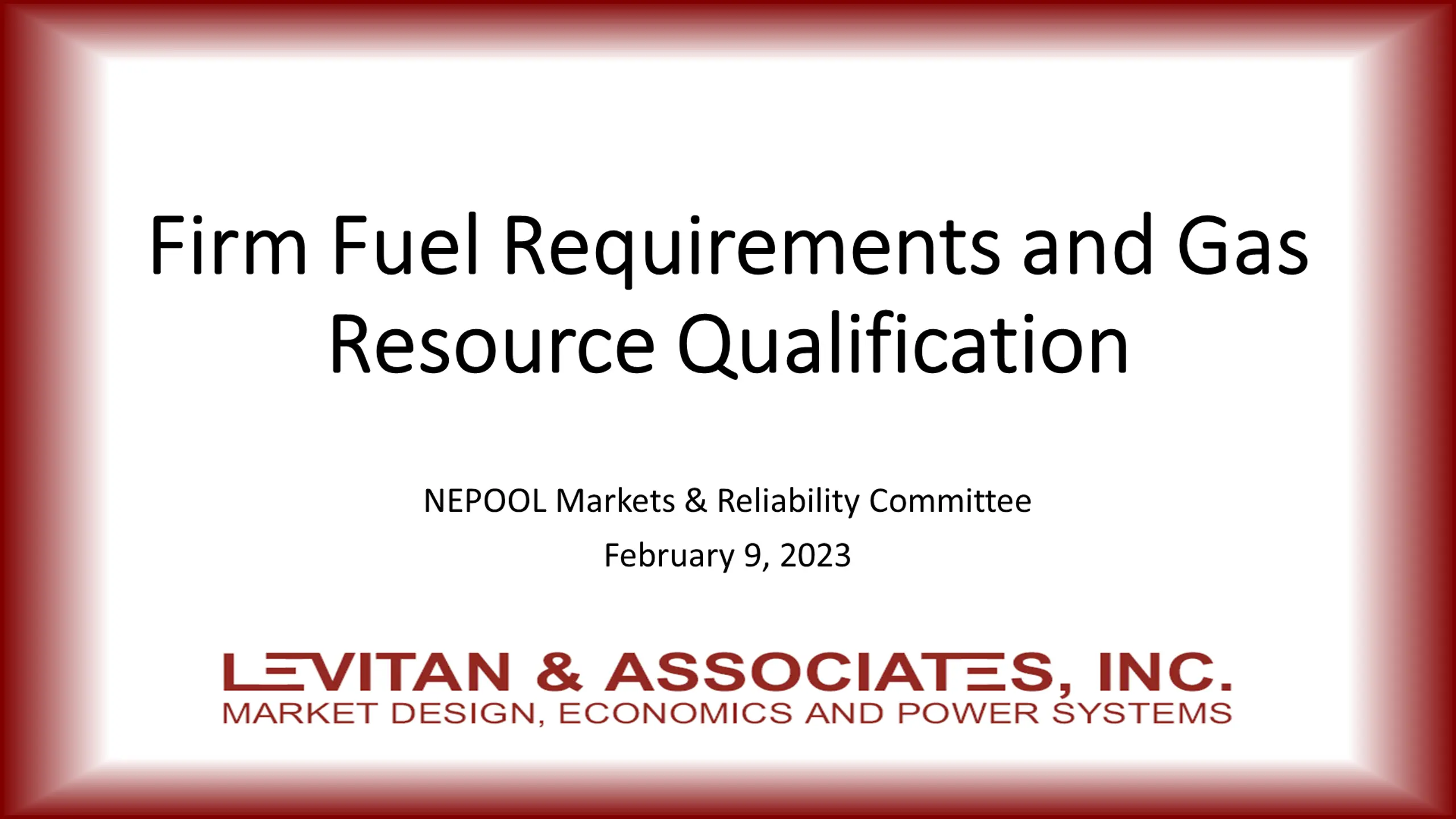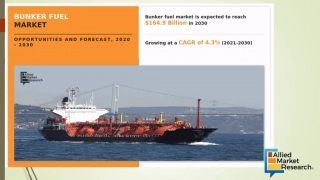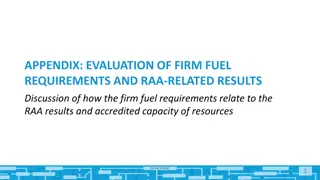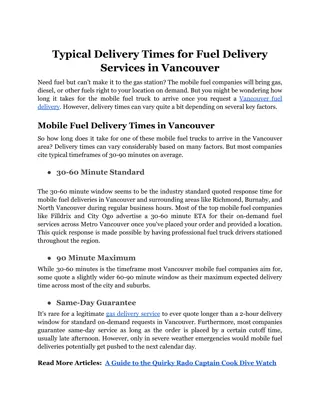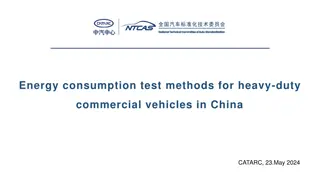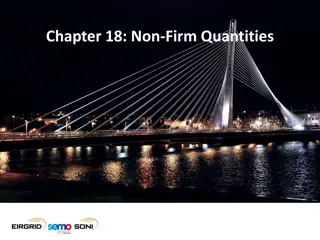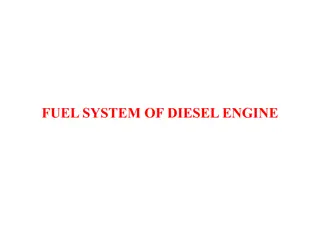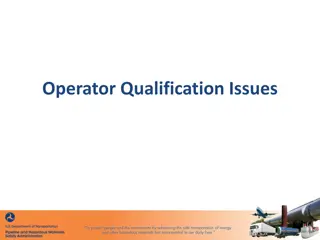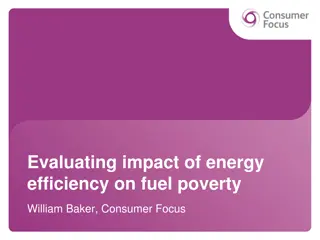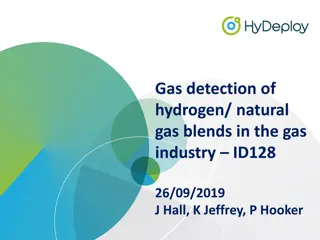Firm Fuel Requirements and Gas Resource Qualification
Explore gas resource capacity accreditation, firm fuel arrangements, and new qualification rules for gas-only or dual-fuel resources in gas-constrained winter periods. Enhancements proposed by ISO-NE aim to improve accuracy for resource modeling in the winter season.
Download Presentation

Please find below an Image/Link to download the presentation.
The content on the website is provided AS IS for your information and personal use only. It may not be sold, licensed, or shared on other websites without obtaining consent from the author.If you encounter any issues during the download, it is possible that the publisher has removed the file from their server.
You are allowed to download the files provided on this website for personal or commercial use, subject to the condition that they are used lawfully. All files are the property of their respective owners.
The content on the website is provided AS IS for your information and personal use only. It may not be sold, licensed, or shared on other websites without obtaining consent from the author.
E N D
Presentation Transcript
Firm Fuel Requirements and Gas Firm Fuel Requirements and Gas Resource Qualification Resource Qualification NEPOOL Markets & Reliability Committee February 9, 2023
Outline Outline Introduction (slide 3) Operationally Limited Resources (slides 4-8) Firm Fuel Requirements (slides 9-13) Firm Fuel Arrangements (slides 14-18) Gas Resource Firm Fuel Capacity Qualification (slides 19-23) New Takeaways, Next Steps (slides 24-25) 2
Introduction Introduction To improve the accuracy of RAA and resource capacity accreditation, ISO-NE proposes various enhancements to resource modeling With specific focus on improving resource capacity accreditation in the winter season, proposed enhancements cover RAA winter season modeling, including the application of gas limitations Gas resource capacity accreditation that recognizes fuel storage capability and gas contracting arrangements New qualification rules will be established to determine the firm and non-firm capacities of gas-only or dual-fuel resources in the gas-constrained winter period In qualification process, gas resources firm fuel arrangements will be compared with firm fuel requirements to determine firm capacity 3
Operationally Limited Resources Operationally Limited Resources 4
Definition Definition Operationally Limited Resources are gas-only generators that experience physical and/or operational constraints on gas delivery that prevent gas use on cold days, as opposed to an economic constraint Clear loss of generation on cold days (HDDs > 45 used in operations lookback), and Challenging location on the gas system Operationally Limited Resources are unlikely to receive gas on many cold days, let alone days when minimal non-firm gas is available for generators Operationally Limited Resources will be derated from their Winter QC to zero in the winter period LAI recommends that operational data be used to flag Operationally Limited Resources 5
Recommended Flagging Approach Recommended Flagging Approach Screening process completed before FCA to review plant operations during cold days Resources flagged through screening process may elect to challenge Operationally Limited Resource designation, where ISO-NE would review material presented to support claims of gas deliverability Additional flagging may be necessary if resources are affected by a planned abandonment of gas system infrastructure Backward-looking operations review will not capture future changes to deliverability LAI conducted operations lookback using EPA Continuous Emission Monitoring System (CEMS) data, but internal ISO-NE metrics necessary to examine smaller resources not reporting in CEMS Metered output Energy market offers Generator availability 6
Operations Lookback Operations Lookback LAI reviewed CEMS data for gas-only resources during cold days (HDDs > 45) Temperature cutoff point where more localized pipeline constraints may come into play, but LDCs have not maximized their consumption of pipeline gas Difficult to differentiate between lack of operations due to resource-specific gas constraints and other drivers Economics Forced outages unrelated to gas supply Outages due to overall gas system limitations rather than resource-specific constraints A narrow operational screen avoids capturing as many false positives from these other drivers LAI flagged resources that operated (output in any hour) on <10% of cold days Operations lookback resulted in three resources, ~700 MW of flagged gas- only capacity out of 30 resources, ~9,100 MW of gas-only generation reviewed 7
Overview Overview - - Qualification Process Flow Qualification Process Flow OLR Flag? Zero Winter Period QC Y N Challenge Success? Y N Winter QC Gas-Only Firm Capacity Describe Firm Fuel Arrangement DQC Calculation Dual Fuel Non-Firm Capacity 8
Firm Fuel Requirements Firm Fuel Requirements 9
Firm Fuel Requirements Firm Fuel Requirements Firm fuel arrangements must be expressed in metrics that can be satisfied by different arrangement types Firm fuel requirements are necessary to account for attributes of firm arrangements Firm Daily Operations Requirement (FDOR) Firm Seasonal Operations Requirement (FDOR) Firm Oil Storage Requirement (FOSR) Requirements will be expressed in hours of full output at Winter QC or rating for applicable fuel type Translates different arrangements for various resources into common value Proposed firm fuel requirement values will be presented at March MC 10
Firm Daily Operations Requirement (Id. to January MC) Firm Daily Operations Requirement (Id. to January MC) Firm Daily Operations Requirement represents a minimum amount of firm fuel, corresponding to hours output @ full Winter QC, to be available daily Compared to Firm Daily Operation Hours (FDOH) as calculated for a given firm arrangement for resource qualification Reflects firm fuel required to mitigate fuel constraints during extreme cold weather Metric aligns with Maximum Daily Quantity (MDQ) convention that is bedrock for firm gas sales, pipeline Transportation Service Agreements 11
Firm Seasonal Operations Requirement (Id. to January MC) Firm Seasonal Operations Requirement (Id. to January MC) Firm Seasonal Operations Requirement represents a minimum amount of firm fuel corresponding to hours output @ full Winter QC, available across the winter period for gas sales agreements Compared to Firm Seasonal Operation Hours (FSOH) of gas sales arrangement for resource qualification Reflects firm fuel required to mitigate fuel constraints across the winter period Metric aligns with Total Contract Quantity (TCQ) parameters typically embedded in peaking gas sales agreements 12
Firm Oil Storage Requirement Firm Oil Storage Requirement Firm Oil Storage Requirement represents a minimum amount of firm fuel corresponding to hours output @ winter rating on oil, available during multiple days of extreme cold weather, from dedicated storage Compared to Firm Oil Storage Hours (FOSH) of a given oil storage arrangement for resource qualification Reflects oil storage required to mitigate fuel constraints across multi-day cold weather events Assumes replenishment is available for oil storage when adverse weather conditions subside Firm Oil Storage Requirement will be <= Firm Seasonal Operations Requirement More formal auditing process may be necessary to appropriately set winter capability on backup fuel 13
Firm Fuel Arrangements (Updated) Firm Fuel Arrangements (Updated) 14
Firm Fuel Arrangements Firm Fuel Arrangements Resources will be asked to identify firm election(s) under one of several arrangements to receive firm qualification Pipeline firm transportation holdings Gas sales contracts (which may be supplied via pipeline or LNG) Oil storage (for dual fuel resources) Pipeline FT Firm Gas Sales Oil Storage Daily Operations Requirement Seasonal Operations Requirement Oil Storage Requirement 15
Pipeline Firm Transportation Holdings Pipeline Firm Transportation Holdings Several generators in ISO-NE currently hold pipeline firm transportation (FT) FT entitlements must include a receipt point at liquid sourcing point outside of New England FT holders do not need to demonstrate how upstream supply is secured No double-counting of sales agreements that utilize these entitlements for transport FDOH, as limited by MDQ, will be compared to FDOR Heat rate (HR) assumed to be set at full-load Winter QC (QC) Firm Seasonal Operations Requirement assumed not to bind ??? ?? ?? ???? = 16
Gas Sales Contracts Gas Sales Contracts IEP tariff revisions are reasonable starting point No scheduling restrictions beyond applicable NAESB scheduling and nominations procedures Take-or-pay, peaking option contracts contemplated, other arrangements may be acceptable Options contracts may require a strike price threshold or alternative damages to ensure performance during tight system conditions FDOH and FSOH compared to respective FDOR, FSOR ??? ?? ?? ??? ?? ?? ???? = ???? = 17
Oil Storage Oil Storage Dual fuel resources with dedicated (on-site or at adjacent location with pipeline transfer capability) storage receive credit per performance on oil as firm resource Firm Oil Storage Hours compared to Firm Oil Storage Requirement Oil storage does not have daily delivery constraints Usable oil storage capacity (not inventory) compared to heat rate, generating capacity on oil (may be less than Winter QC if backup fuel) Replenishment commitments excluded from oil storage qualification Firm Oil Storage Requirement assumes replenishment available when adverse conditions subside Complicated refill logistics during cold weather conditions due to transit difficulties, competing regional supply chains Diverse modes of replenishment that also vary in difficulty by plant location ??????? ????? ?????? ???? = 18
Gas Resource Firm Capacity Gas Resource Firm Capacity Qualification Qualification 19
Firm Capacity Qualification Firm Capacity Qualification As noted in December presentation to MC, a winter de-rated qualified capacity (DQC) for gas-fired resources will be constructed by incorporating the firm capacity and de-rated non-firm capacity Firm Capacity will be calculated in accord with winter rating on firm fuel utilized in firm-up arrangement Multiple firm arrangements may be applied to same resource and would be additive (subject to total firm capacity <= Winter QC) Shared firm arrangements must identify how fuel will be allocated across resources 20
Partial Qualification (Id. to January MC) Partial Qualification (Id. to January MC) Many existing firm arrangements (pipeline FT and oil storage) represent long- term fixed costs that cannot be scaled to produce incremental firm fuel Partial firm qualification allows for resources to receive credit for inflexible or comparatively cost-effective firm fuel arrangements, subject to operational constraints Pipeline FT: ???? ???????? = ????/???? Gas sales contracts: ???? ???????? = min(???? Oil storage: ???? ???????? = ????/???? ????,???? ????) 21
Qualification Examples Qualification Examples Numbers for illustration only Numbers for illustration only Compare resources A, B, C, D with assumed heat rate of 10 MMBtu/MWh Gas-only resource A (winter QC = winter rating = 100 MW) has pipeline FT with MDQ of 5,000 MMBtu FT represents 5 hours/day at full output, will be compared to FDOR (e.g., 10 hours/day) Arranged MDQ represents 50% of FDOR Firm gas capacity = 50 MW and non-firm gas capacity = 50 MW Gas-only resource B (winter QC = winter rating = 100 MW) has a gas sales contract with MDQ of 10,000 MMBtu and TCQ of 25,000 MMBtu Gas sales contract represents 10 hours/day and 25 hours/season at full output, will be compared to FDOR (e.g., 10 hours/day) and FSOR (e.g., 50 hours/season) Contracted MDQ represents 100% of FDOR and TCQ represents 50% of FSOR Firm gas capacity = 50 MW (50% of winter rating) and non-firm gas capacity = 50MW 22
Qualification Examples, cont. Qualification Examples, cont. Numbers for illustration only Dual-fuel (primary gas) resource C (winter QC = winter gas rating = 100 MW, winter oil rating = 90 MW) has an oil tank with 18,000 MMBtu storage Oil tank, which represents 20 hours of output at 90 MW winter oil rating) will be compared to FOSR (e.g., 40 hours) Oil tank represents 50% of FOSR Firm gas capacity = 45 MW (50% of winter rating) and the remaining winter QC is non-firm gas capacity = 55 MW Dual-fuel (primary oil) resource D (winter QC = winter oil rating = 90 MW, winter gas rating = 100 MW) has an oil tank with 18,000 MMBtu storage Oil tank represents 20 hours of output at 90 MW winter oil rating, will be compared to FOSR (e.g., 40 hours) Oil tank represents 50% of FOSR Firm gas capacity = 45 MW (50% of winter rating) and the remaining winter QC is non-firm gas capacity = 45 MW Numbers for illustration only 23
New Takeaways, Next Steps New Takeaways, Next Steps 24
New Takeaways, Next Steps New Takeaways, Next Steps New Takeaways LAI s operations lookback flags appropriate resources, which do not represent large portion of gas-only fleet Conceptual oil storage definition expanded Specific qualification criteria for oil storage will be handled in final design Market Participants should have flexibility to allocate shared firm fuel arrangements across resources Next Steps Values and explanation for Firm Fuel Requirements expected in March Additional detail on qualification criteria for firm gas sales arrangements will be part of final design, presented in April 25
Appendix Appendix 26
Glossary of Terms Glossary of Terms Operationally Limited Resource: gas-only generators that experience physical and/or operational constraints on gas delivery that prevent gas use on cold days, as opposed to an economic constraint. Would receive qualified capacity of zero in winter period, and would not be eligible to qualify any firm capacity De-Rated Qualified Capacity (DQC): Qualified capacity for gas resources that applies during the winter period, derived from firm and non-firm capacity portions with non-firm capacity subject to De-rating Factor 27
Glossary of Terms, Cont. Glossary of Terms, Cont. Firm Daily Operations Requirement (FDOR): The minimum amount of fuel, corresponding to hours output @ full Winter QC, to be available daily for a firm gas arrangement to be qualified in full as Firm Capacity Maximum Daily Quantity (MDQ): Common term in gas supply and transportation agreements that represents the maximum amount of fuel that a buyer can call upon in a given (gas) day Firm Transportation (FT): Character of gas service defined in base NAESB contract convention and interstate pipeline tariffs 28
Glossary of Terms, Cont. Glossary of Terms, Cont. Firm Seasonal Operations Requirement (FSOR): The minimum amount of fuel, corresponding to hours output @ full Winter QC, to be available across the winter period for a firm gas arrangement to be qualified in full as Firm Capacity Total Contract Quantity (TCQ): Common term in gas sales agreements that represents the maximum amount of fuel that buyer can receive in a given contract period, such as a year or season. Also referred to as Annual Contract Quantity or Seasonal Contract Quantity. Firm Oil Storage Requirement (FOSR): The minimum amount of firm fuel corresponding to hours output @ winter rating on oil, for oil storage to be qualified in full as Firm Capacity 29
Glossary of Terms, Cont. Glossary of Terms, Cont. Firm Daily Operations Hours (FDOH): Amount of fuel, corresponding to hours output @ full Winter QC, to be available daily under a specific firm gas arrangement Firm Seasonal Operation Hours (FSOH): Amount of fuel, corresponding to hours output @ full Winter QC, to be available across the winter period under a specific firm gas arrangement Firm Oil Storage Hours (FOSH): Amount of firm fuel corresponding to hours output @ winter rating on oil available for a resource from a specific oil storage facility 30
